A Chaotic Carnival of Wild Abundance
12 August 2019 | The Mara | James Hendry
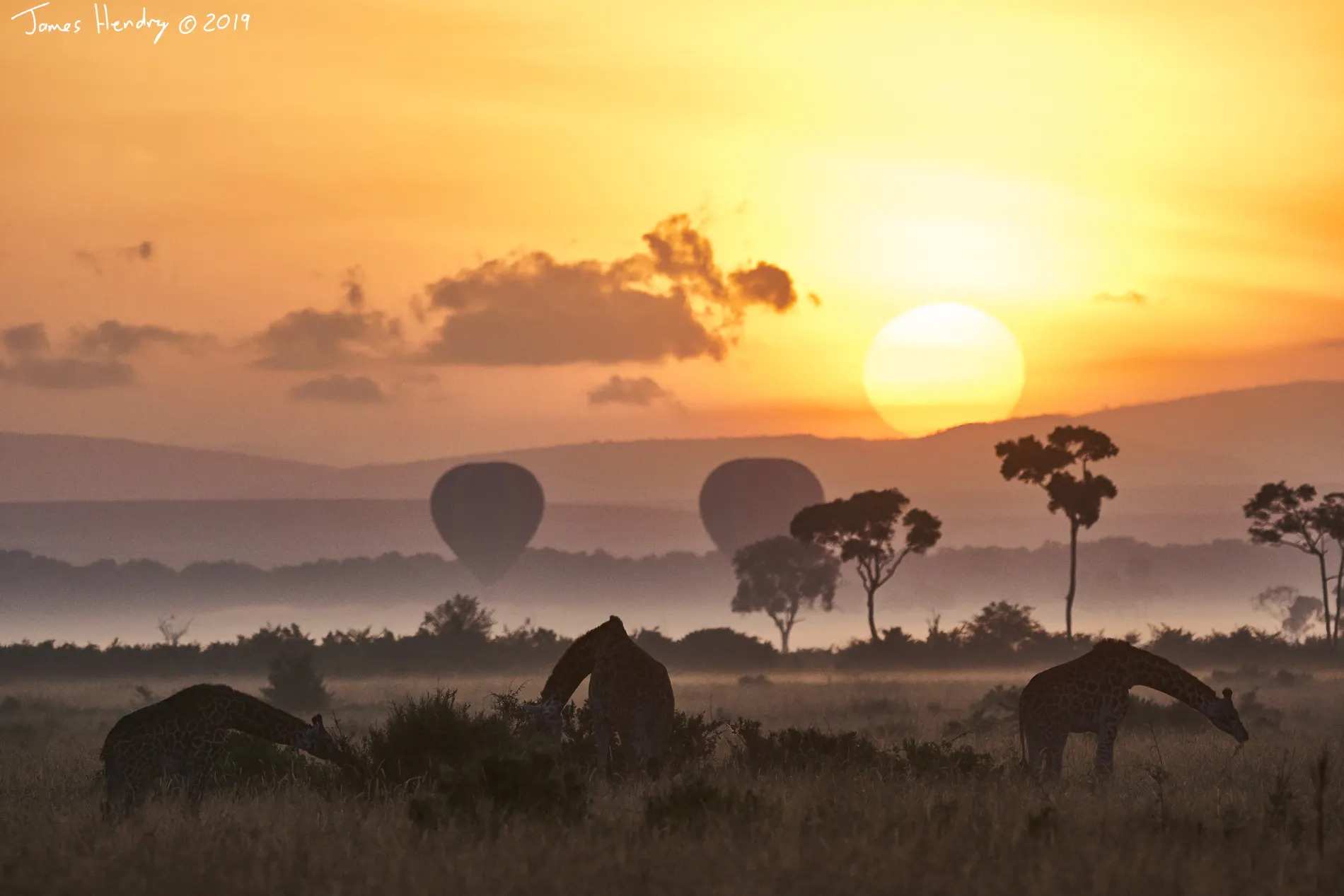
When I last left the Mara in March, the sea of red oat grass was dotted with floating pachyderms and topi marooned on termite mounds. Invisible in the waves, lions eyed rafts of drifting buffalo. The first thunder of the long rains cracked as I flew out.
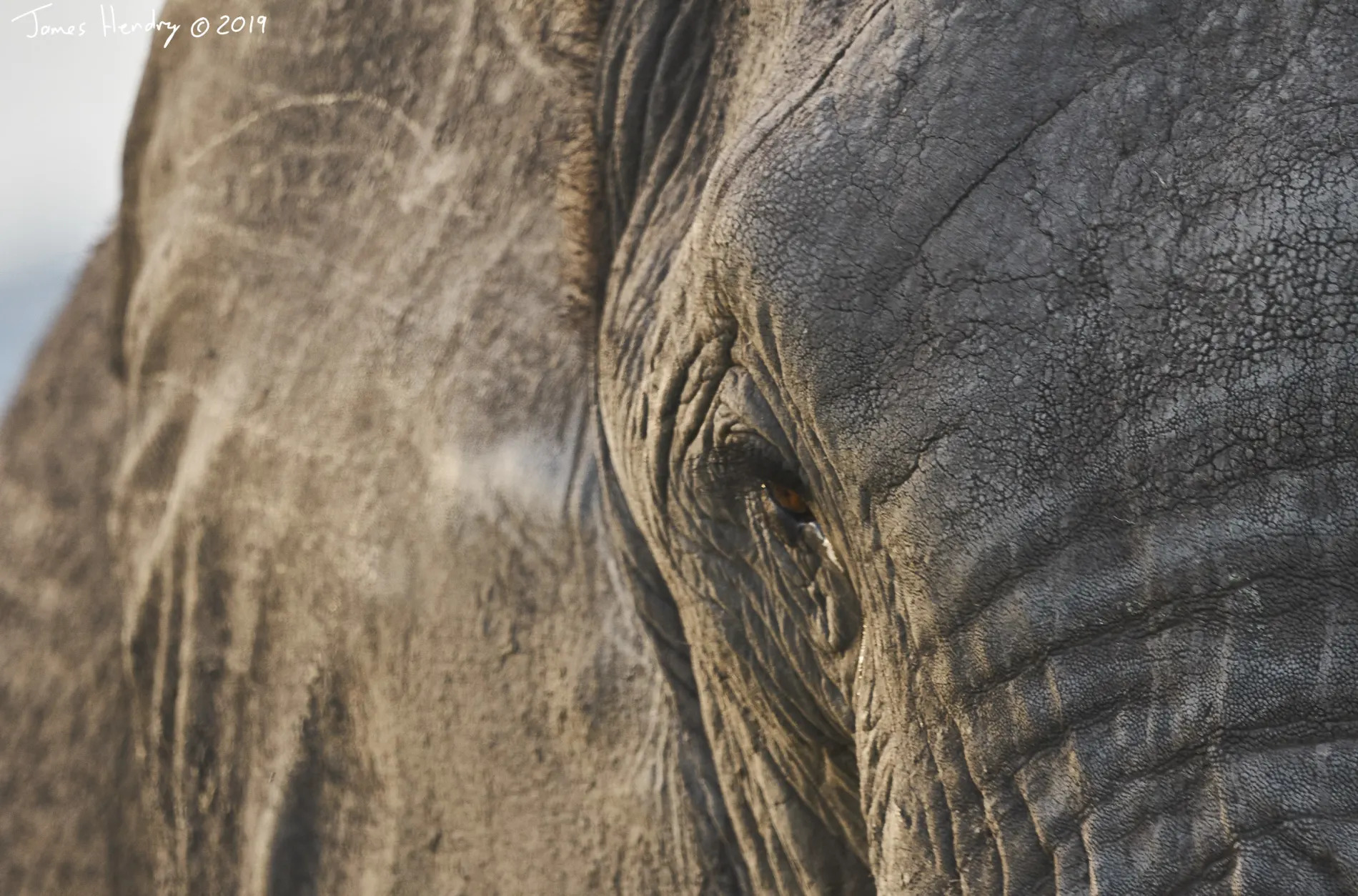
On my return, a few months later, the waves had grown – the flotillas of buffalo and elephant still bobbed in the waving culms but an air of expectation hung over the magical Mara. Rather like a sleepy coastal hamlet waits for the influx of summer holidaymakers, so the Mara was on edge. Reports of the coming migration were drifting in from the northern Serengeti.
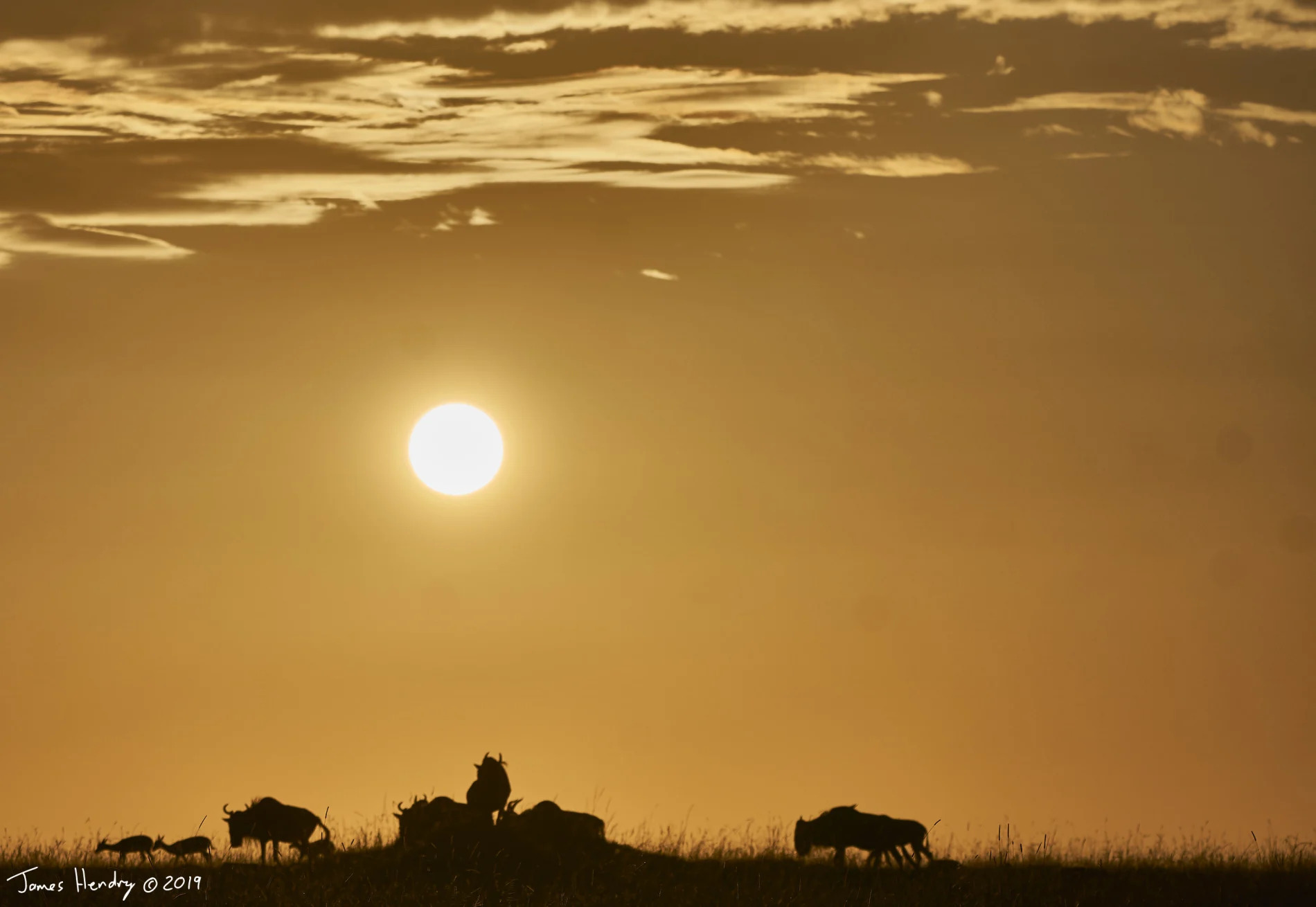
For seven days, I sped to the Kenya/Tanzania border but there was no evidence of the great, grazing armada. Then, on the eighth day of my border pilgrimage, the hills of the Serengeti to the south had taken on a darker shade. The view through my binoculars revealed thousands of little black boats sailing steadily north…
I must now dispense with the metaphor of oceanic serenity. Serenity is not a noun that can be accurately used in relation to the migration. Chaotic carnival of wild abundance is a better description. During this period, animal behaviour (both human and non) make the antics on the Copa Cabana come New Year’s Eve look positively restrained.
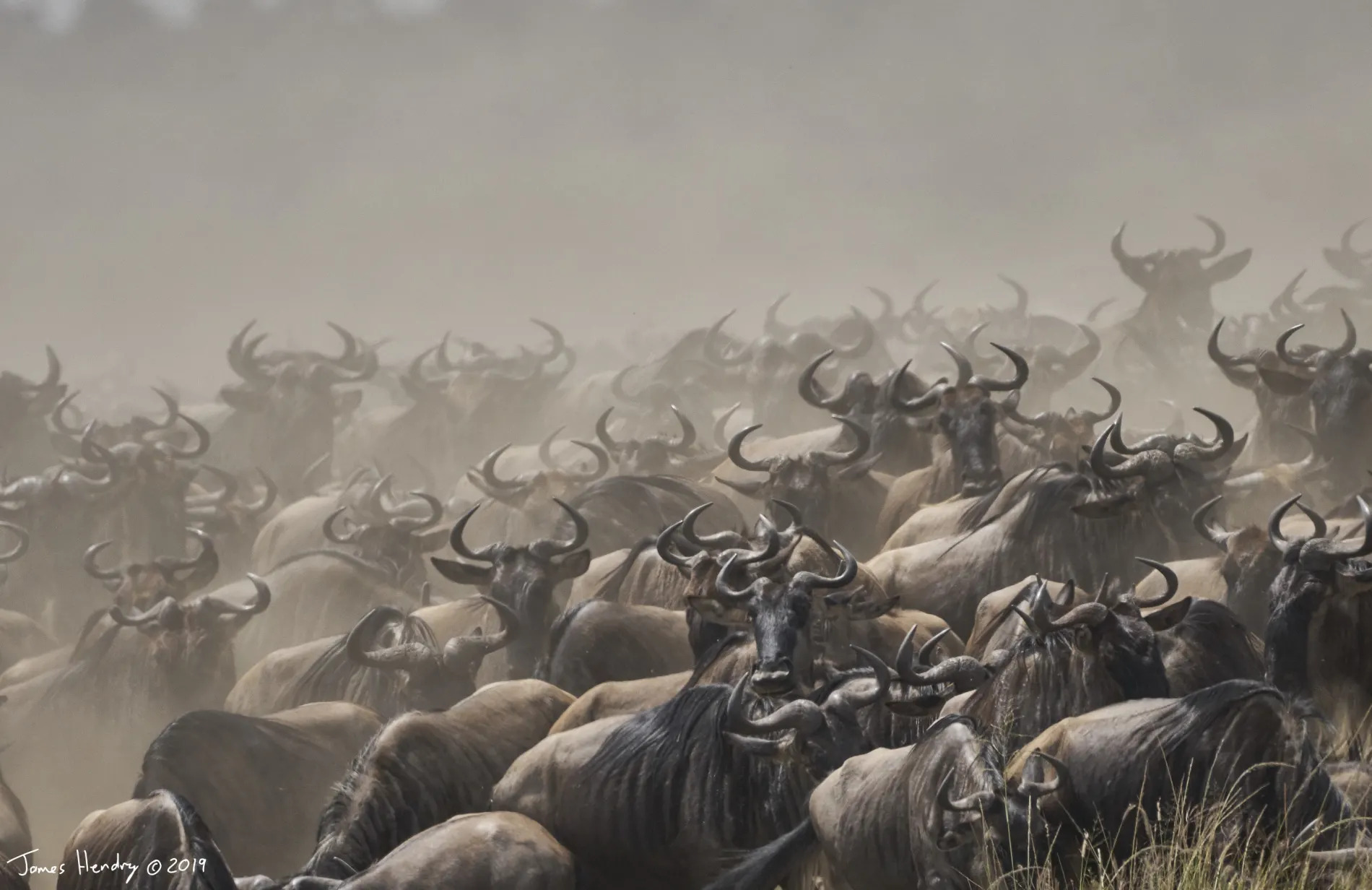
Let us begin with the cause – the herds, principally the wildebeest, and their inevitable meeting with the Mara River. Initially, everything proceeds in an orderly fashion as it has for the last umpteen months. The sun comes up, the birds begin to sing, the hippos return to the water, the buffalo chew their cud and the lions go to sleep (again). Then, the first gnu gets it into his skull that the grass on the other side of the river (identical, to my eyes) is somehow more nutritious than the stuff he’s currently eating. He convinces ten thousand of his closest friends that he’s hit on a superb idea and by the time they’ve all arrived on the banks, the stage is set for a scene of epic mayhem otherwise unknown in nature.
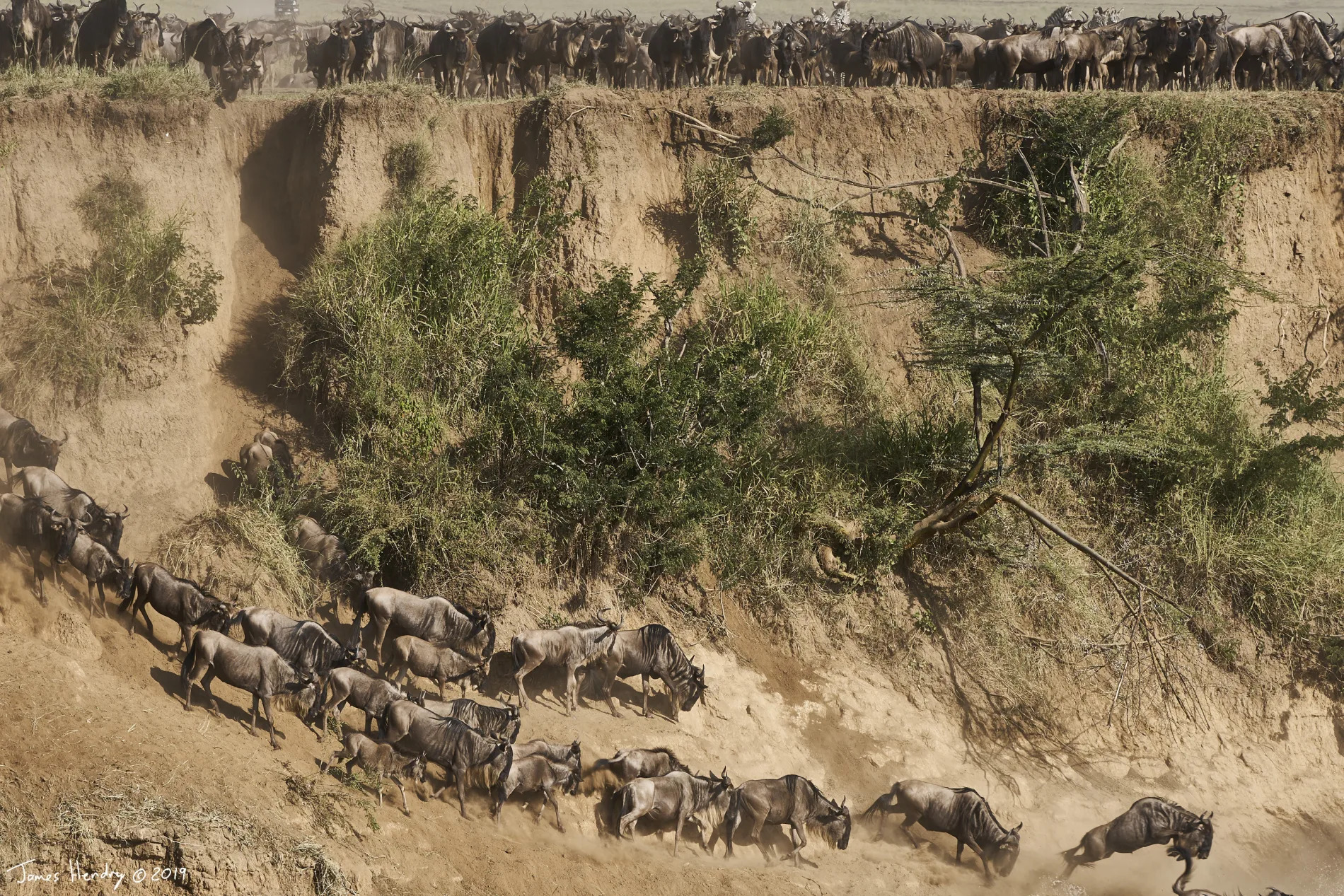
On either side of this great column of gnuing, belching ungulates accompanied by three billion flies, humans stream, armed with cameras, phones, binoculars and, in some cases, beer. The air of expectation is palpable – this is what everyone has travelled so far to see – a wildebeest crossing of the murderous Mara River…
Three hours later, the prevaricating stars of the show have yet to take the plunge. From time to time, one has pushed a hoof over the edge (up to 10-metres high in some cases) and then taken fright, sending ripples of panic along the front lines. Any air of expectation in the audience has evaporated. Guests are stupified by the heat, dust and flies. Guides force encouraging smiles as they valiantly attempt to stay lucid. For a while it seems that it’s all been a colossal waste of time and money.
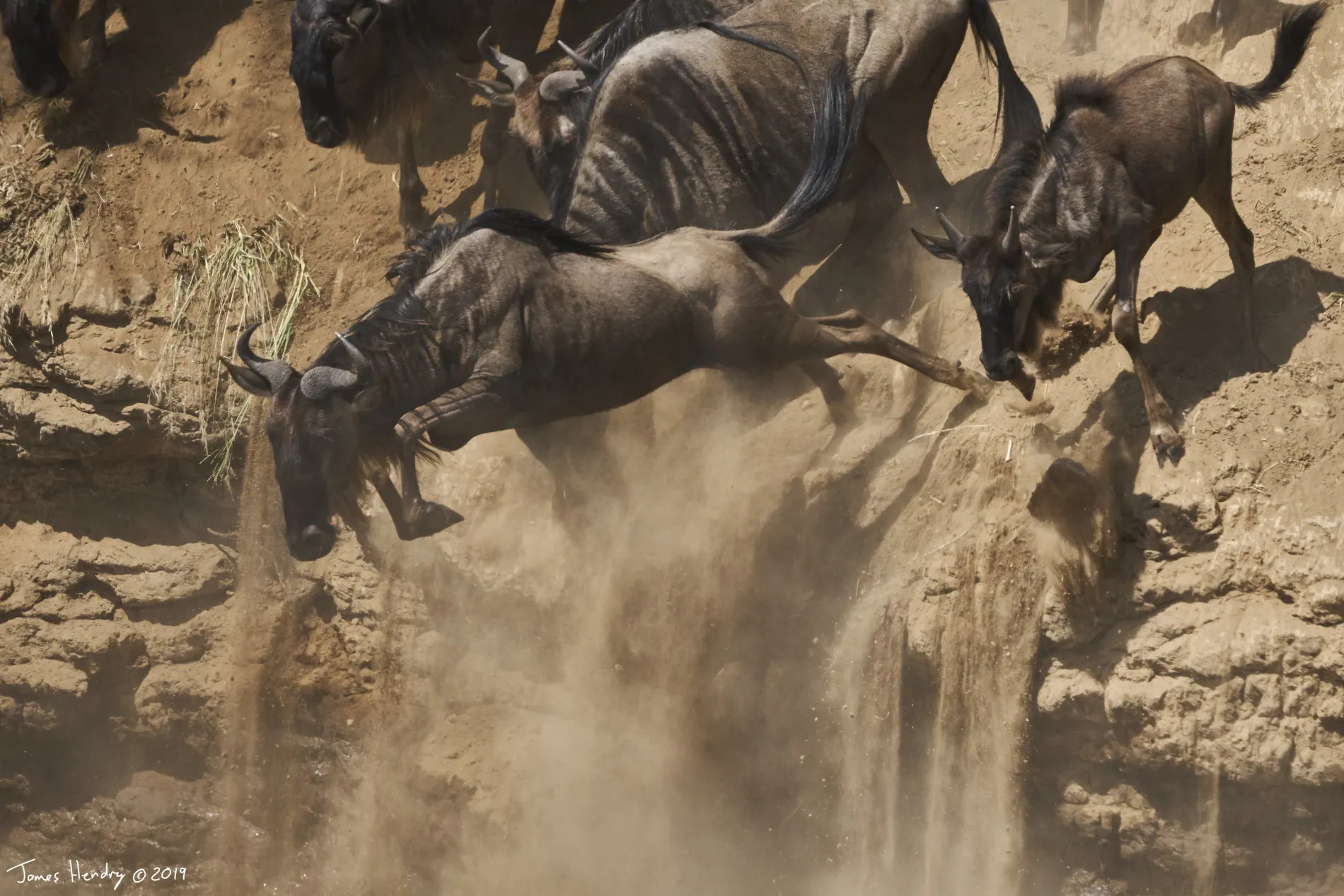
Then, for absolutely no reason that science can discern (although guides will always provide an outlandish theory or ten), the first wildebeest finally flings him (or her)self off the bank and at the sound of the first splash, the gnuing reaches fever pitch and there is a surge of activity that beggars belief. The herds sweep towards the bank. Most funnel through well-worn gullies, many throw themselves off the precipice, plummeting to water if lucky and rocks if not. The sound of churning water mixes with that of thundering hooves, distressed bellows, gleeful flies and choking dust.
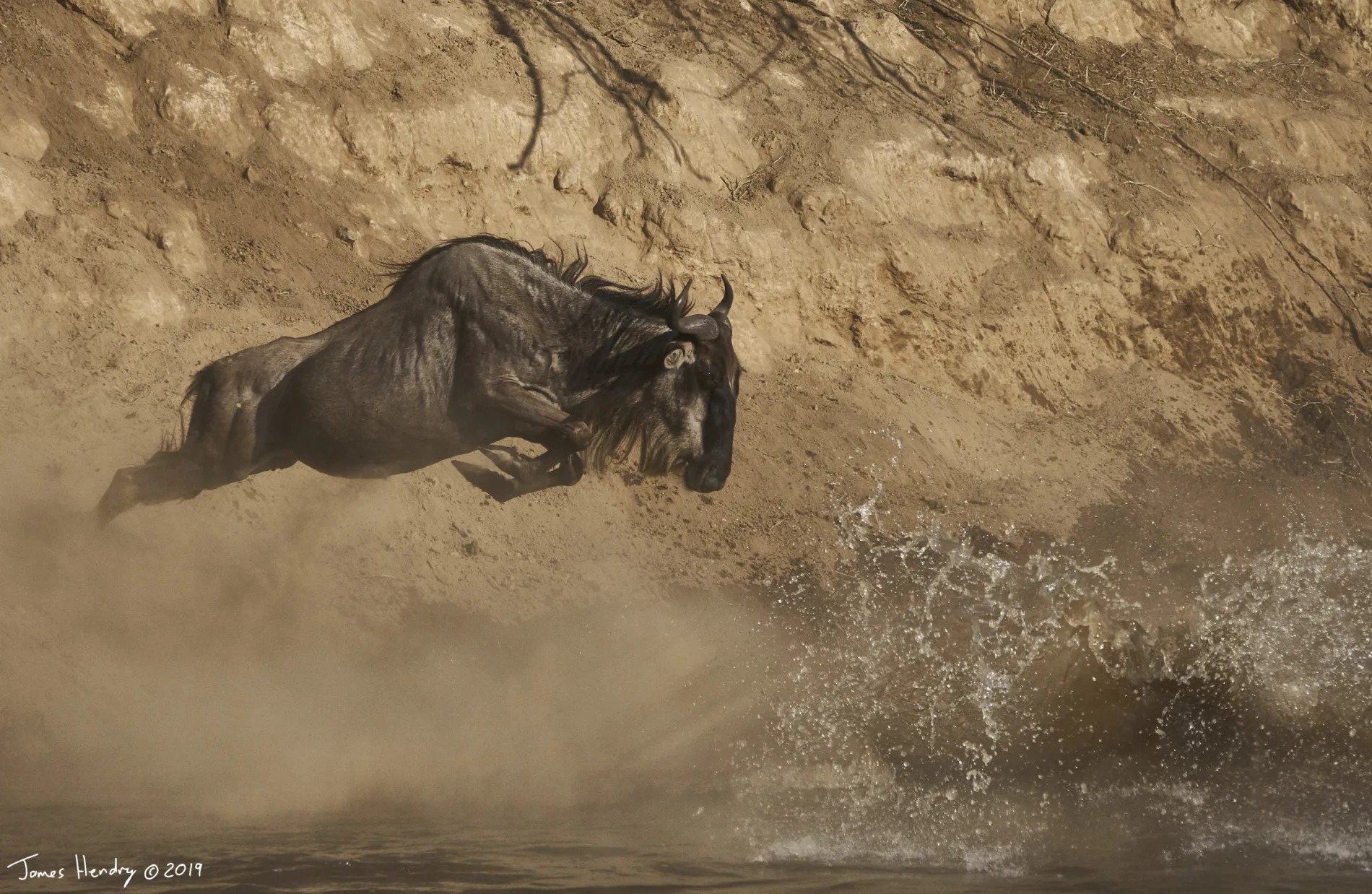
It is at this point that students of human behaviour become interested. Hitherto, polite and courteous guests have smiled and joked with each other – bound by a common love for nature and the expectation of her greatest spectacle. However, when that first gnu hits the water, manners evaporate, and a mad drag race for the best position on the bank ensues accompanied by whooping, swearing, threatening, roaring engines and clouds of diesel.
It is frankly terrifying.
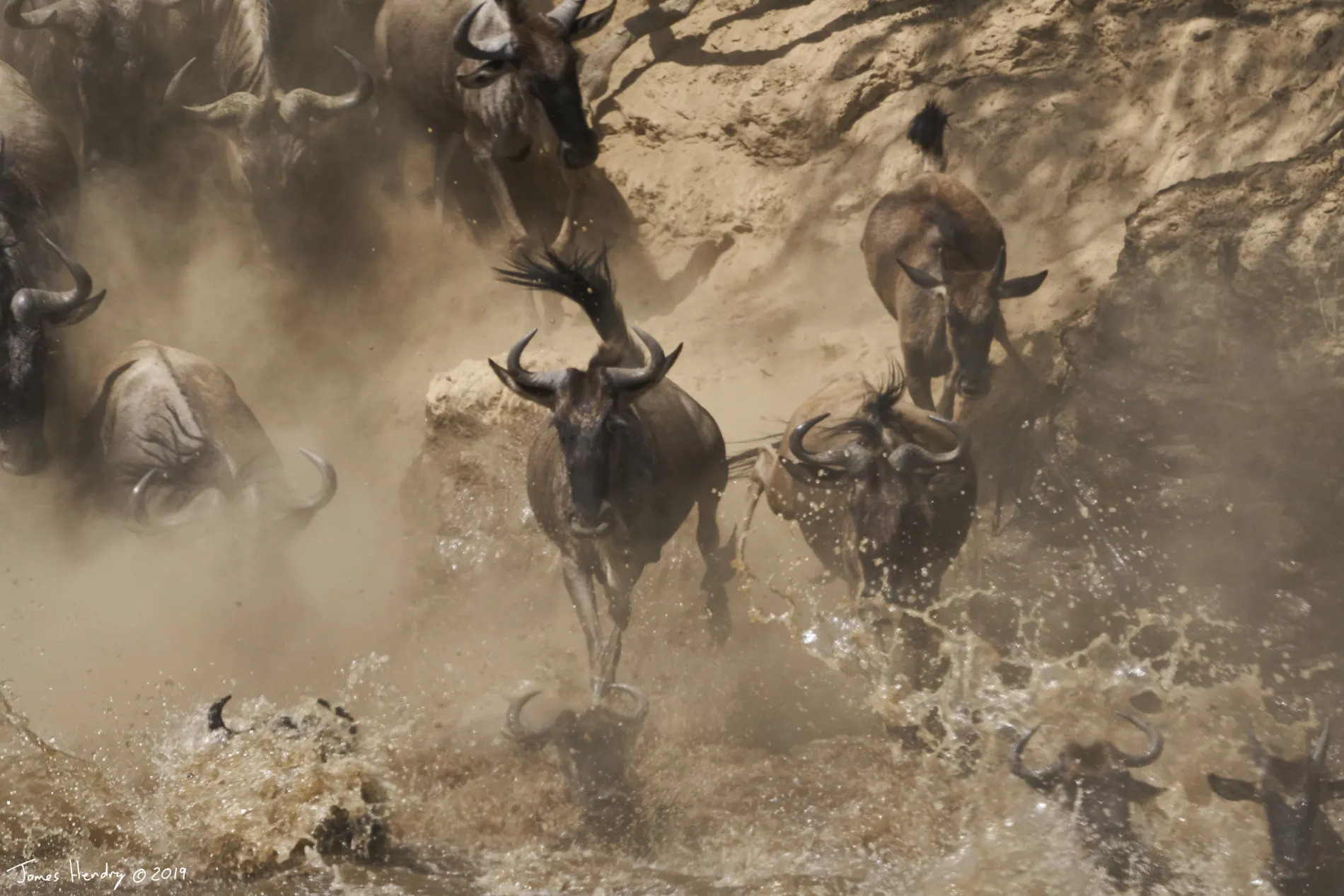
Mercifully, nature has the perfect antidote to this explosion of aggressive, competitive zeal. The sight of the herds cascading into the current, fording the channel and then slipping and sliding their way out in a bedraggled, inanely gnuing, wet-dog-smelling mass, restores the feelings of bonhomie and mutual wonder.
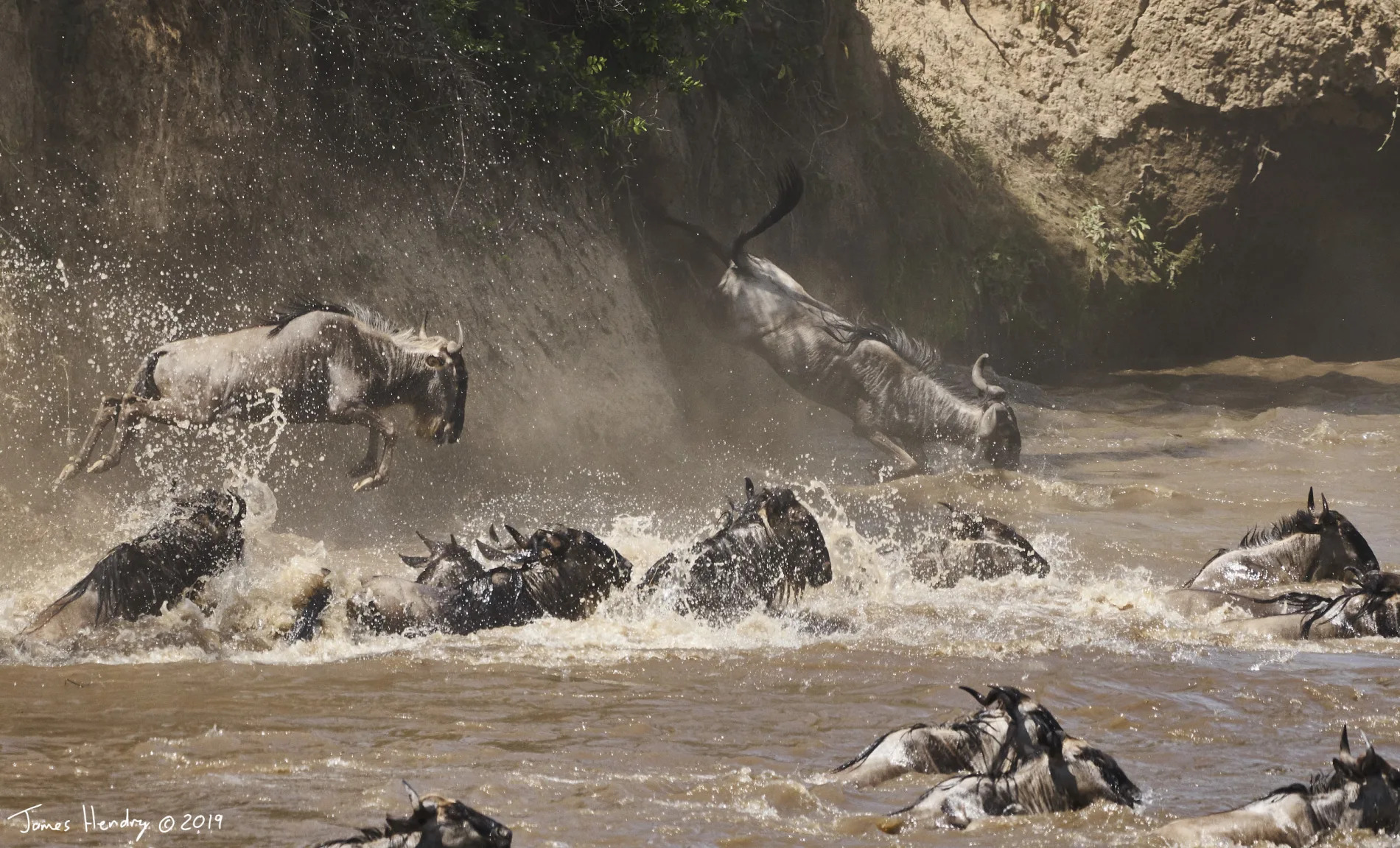
There surely cannot be anything more tear-jerkingly gob-smacking than being in the thick of a migration river crossing. The cloying dust tastes like your favourite meal, the swirling water sounds like a symphony and the smell of the sweating, sopping, dunging gnus satisfies like no perfume ever could.
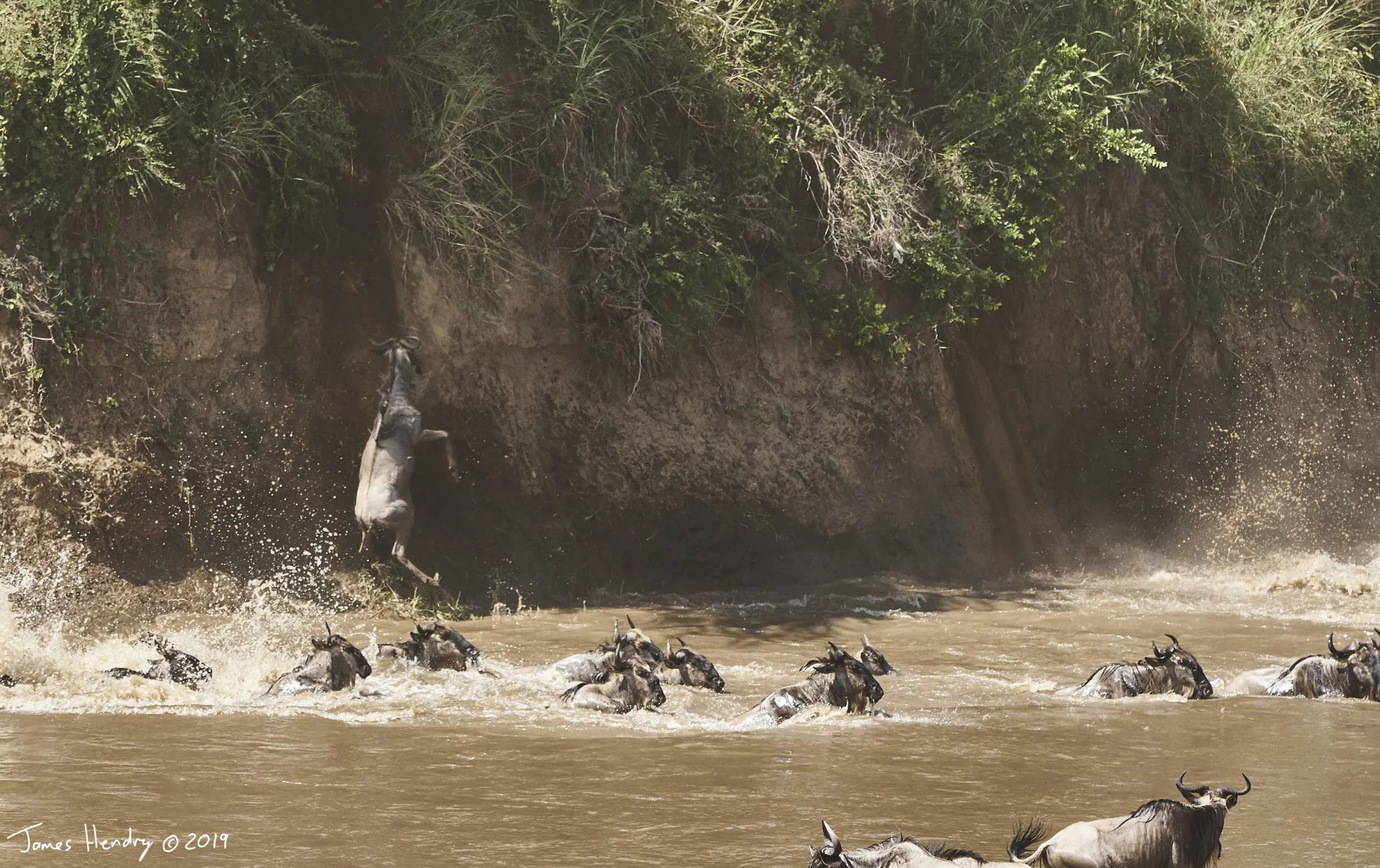
It is, however, probably the spirit of those brave wildebeest that is most compelling. The endless prevarication indicates a genuine awareness of the risks – broken limbs, drowning, crocodiles. So it is impossible not to cheer with glee at the triumph of the many that make it and shed a genuine tear of respect for the few that fall to injury, teeth or the rapids.
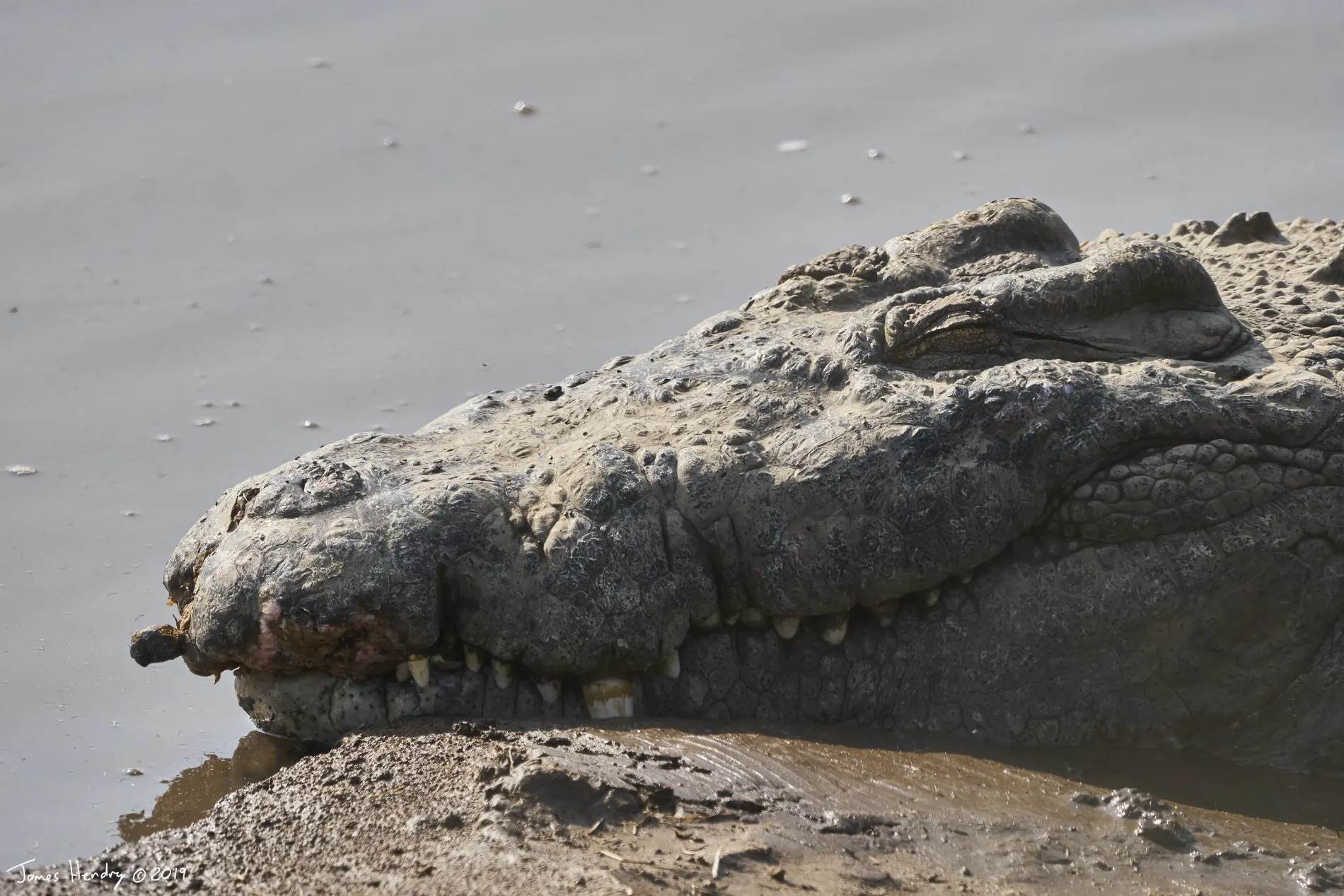
TAGGED WITH: Angama Mara, Great Migration, Mara Triangle, Wildebeest, the great migration, Angama



COMMENTS (2)
Francis Bagbey
August 13, 2019Loved his “dry, sarcastic wit that reflects the inspiration and joy he derives from observing the human condition and the natural environment.” I experienced all of what he described less the beer drinking while waiting for something to happen. Just about bounced out of our vehicle as our guide tore off over those bumpy Mara tracks to get us into best position to witness these incredible crossings. Thanks for the photos and this perfect description of this experience.
REPLYMJ Bradley
August 21, 2019Written as only James can write. He writes just as he sounds! A fantastic story teller . If you haven’t read his book ‘A Year In The Wild’ and it’s sequel you are missing a wonderful read.
REPLY